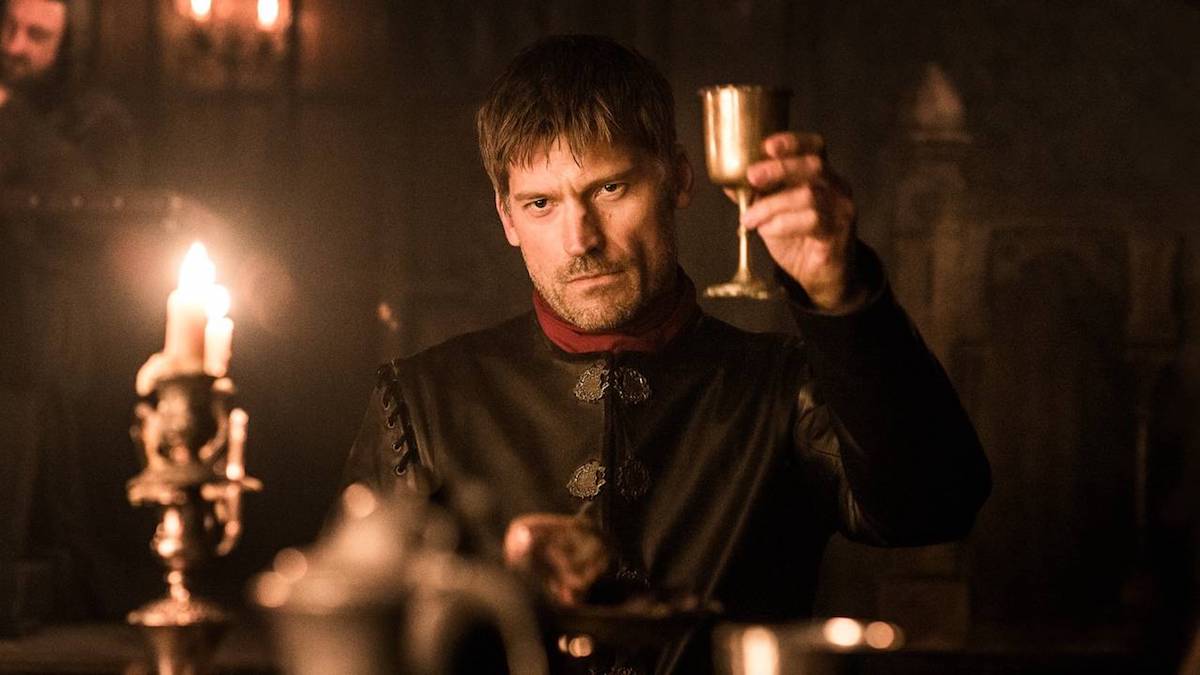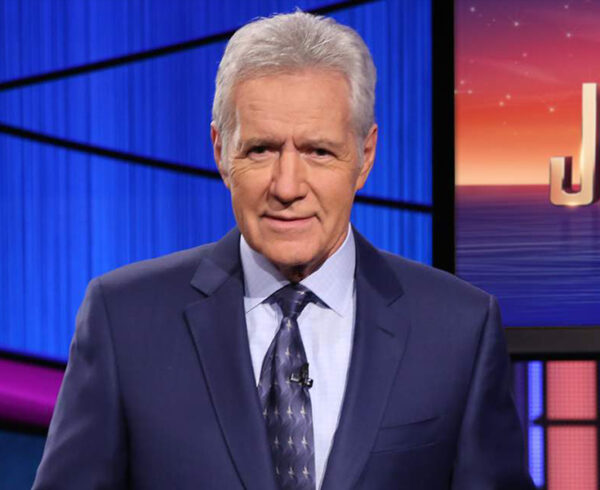‘Game of Thrones’ Is a Treatise on Absolute Power Corrupting Absolutely
Power is a devastatingly addictive device. It can corrupt seemingly strong and moral men, it can lead to the slaughtering of entire civilizations, and it can bring long-held regimes to their knees. Once a person becomes consumed by the quest for power, individuals become nothing more than pawns to be sacrificed in the name of maintaining order and control.
So it has been since the beginning of governed societies and so it will be as long as there are states to seize and wield. It is for this reason that Game of Thrones is such a compelling series.
As its title implies, Game of Thrones is all about the pursuit of the crown in the fictional realm of Westeros. Not wanting to be plagued with an extreme case of FOMO when the newest season finally aired and having a particular affinity for all forms of entertainment involving dragons, I spent much of the last two weeks of my life binge-watching the six completed seasons of the series.
“Maybe Your Mistake Was Trusting in Kings”
As I made my way through each episode, initially disturbed by all the blood but eventually becoming somewhat desensitized to the number of heads being casually sliced off, I realized that all the violence perpetuated in the show was committed in the quest for power and at the expense of the individual. Or, to put it differently, all the lives being sacrificed were lost in the name of propping up the state.
To make matters worse, aside from a few exceptions, each of the seven kingdoms of Westeros is ruled by landholding lords who care more about maintaining their positions than the welfare of their own subjects. And while many of these lords, Ramsey Bolton and King Joffrey in particular, are heinous creatures drunk off their own authority and without any redeemable qualities, there are still serfs and military members who are all too willing to die to protect a leader who cares nothing for them.
And even though history is replete with obedient subjects, I still couldn’t understand why the people of Westeros were so eager to have someone rule over them. These rulers had nothing of value to offer their people aside from the false promise of security from foreign threats. Yet with each display of corrupt leadership came more unwavering loyalty.
Even the Brotherhood Without Banners, which is a loosely structured group of individuals who refuse to pledge their allegiance to a particular lord, are inclined to follow a leader. What this all inevitably boils down to, and what the show so poignantly demonstrates, is the age-old truth of absolute power corrupting absolutely— no matter which geographical region or ideological background it originated from. And while the series is most likely not meant to be a thesis on the nature of power and its impact on the individual, it undoubtedly is.
But then there came a ray of light.
As I watched the sixth season, I noticed the tides finally changing. The people were sick of fighting for causes that did not directly impact them. They were tired of making the ultimate sacrifice even thought they knew they would suffer oppression – regardless of who leads them. Trusting in governments had truly only made their lives worse. No king or lord was going to liberate them by keeping them in absolute servitude.
In one of the last episodes of season six, as two characters are discussing how they ended up in their predicament, one comments, “Maybe your first mistake was trusting in kings.” How aptly this comment summarizes the entire problem human civilization has grappled with for years. Why do individuals place their trust in authoritarianism?
Cast Off Your Chains
Fear is one of the strongest human motivators. It can lead people to do things they never thought they were capable of doing. It can lead individuals to capitulate to the whims of leaders they believe will protect them in return.
In what may be the most genius strategy ever executed in the fictional world, Daenerys Targaryen assumes her role as conqueror of Easteros by preying on the fears of the enslaved populations and playing the role of hero in neighboring lands.
With each land she conquers, she promises freedom to the local slave class – so long as they sacrifice their lives to aid her in her conquests. And while these enslaved people initially view her as their benevolent emancipator, she is merely a master of a more cunning variety.This situation could, for example, be likened to a nation claiming to be free while instituting a compulsory draft. It is freedom in name only. At the end of the day, the lives of each citizen are still pledged to whoever resides on the throne and their only real value in the eyes of the ruler is as a dispensable body to stand in the way of an opposing army “storming the castle.”
As her army steadily begins to grow and she continues to conquer each new government that stands in her way, Daenerys continues to speak of liberating those who have been mistreated by their former masters. While she probably has the most noble heart of any of the characters on the show – aside from the Starks (Jon Snow included) – she still maintains her power through the use of force.
Daenerys encourages her collection of freemen to kill in her name with almost no discretion given to the matter. However, after a group of masters go on a killing rampage over the loss of their slave population, Daenerys, human as she is, begins to exhibit a rule of will over the rule of law she claims to live by; the Achilles heel of so many rulers before her.
Wanting to show her opposition that she is a just and strict ruler to tone down their campaign against her, Daenerys puts the man responsible for slaughtering her people on trial, instead of executing him on the spot like so many others. However, while he is awaiting his day in court, one of her soldiers, overwhelmed by his love and devotion for his queen, utilizes vigilante justice and takes the man’s life.
Showing what happens when someone disobeys her authority, Daenerys has her own man publicly beheaded as he begs her for mercy. But what is particularly enlightening about this scene is that while attempting to stand up for the rule of law she is actually doing it a great disservice by denying her own soldier a trial. For the rule of law to exist, due process would have to be applied equally to each citizen. Instead, only those of higher ranks are given that right.
This angers her newly liberated slave soldiers as they realize they have traded one master for another. And where once the revolting slaves had written “kill your masters in blood,” underneath it now reads “Mhysa is a master,” referring to Daenerys.
For the entire duration of the show up until this point, I had believed Daenarys to be the most incorruptible character on the show. Sure, she kills people, but every character on the show kills and at least Daenerys’ intentions were purer than most. Not only had she spent most her life in exile, she was, for all intents and purposes, a slave in her own right.
Before her brother died by her own authority, Daenerys had been subjected to a wide range of atrocities at his hand. She was beaten and even routinely gifted to men in order to fulfill whatever ends her brother was after. In fact, even her marriage was a result of force since she was gifted to a savage warrior king in order to add more might behind the Targaryen claim to the throne.
All these factors instantly made Daenerys a sympathetic character rooted for by viewers. Since she had endured so much hardship in her life, one had high hopes for her character. But not even Daenerys, the mother of dragons, was able to see how power had slowly corrupted her in spite of her claims of liberation. Without even noticing, she had become the same enemy she claimed to be against.
Winter Has Always Been Coming
So long as there have been governments instituted among men, so has the threat of tyranny inevitably loomed around the corner. And as history and even fantasy fiction have shown, the only antidote to tyranny is constant vigilance.
“Winter is coming” is the creed of the House of Stark. It is repeated often both by the Stark family and their northern supporters scattered throughout the seven kingdoms. It is an ominous warning to never let one’s guard down or become complacent in the comfort of the present. Winter, or some other formidable foe, is always waiting in the wings.
For the Starks, winter manifests itself in the fight for power in which they are inevitably caught because of their noble origins. The Starks are unique in that they have never actively pursued the crown. Their main concern has always been survival and maintaining their family honor. But unlike the others, they do not see the throne as the only means to their ends. Even when the dying King appoints Ned as the acting king until his son comes of age, Stark only agrees because the heir to the throne was a tyrant-in-waiting.
While some members of the House of Stark have dabbled with power, Sansa especially, the family is an extreme juxtaposition to the other characters on the show.They seem to understand the nature of power and what those who seek it are willing to do. They also seem to understand the need for constant vigilance. They know there will always be those who fight for total and complete control, and that they themselves must always be prepared to fight back to uphold and protect their dignity as individuals.
There will almost certainly always be an ongoing game of thrones in the real world. As people fight to obtain and maintain their power, the individuals are the ones who lose along the way. As Game of Thrones has so brilliantly shown us so long as societies insist on having a king, or a president, or some ultimate authority figure, winter will always be coming and it will come at the expense of the individual.
This column originally appeared at the Foundation for Economic Education and is reprinted with permission.












